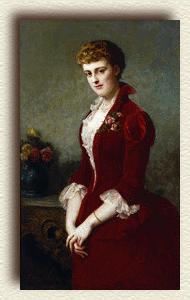The Great Gatsby
F. Scott Fitzgerald
 |
| Jay Gatsby |
Gatsby is, obviously, the main character in the novel, although we do not directly meet him until the third chapter. Some would argue that Nick Carraway is the central character in the book, but I think that he is just a pawn in Gatsby's plans and just plays the role of friend and observer throughout the story. I think he is a round, dynamic character because he has multiple personality traits and changes throughout the novel. Something random about Jay Gatsby--what's with the "old sport" stuff on nearly every page? I love it though! I also love his newly-kindled relationship with Daisy. "At his lips' touch she blossomed for him like a flower and the incarnation was complete" (Fitzgerald, page 111).
 |
| Jay and Nick |
I couldn't find a drawing of just Nick, so this is one of both him and Gatsby; however, this is actually a great place to start with Mr. Carraway's description. Well, he doesn't actually know Jay for practically his entire life, but he does live right next door to him. As a pawn in Gatsby's future plans, Nick is invited to one of Gatsby's famous parties, and some sort of relationship blossoms, although neither really confides truthfully in each other. Nick is also a round, dynamic character because of his role in Gatsby's life.
The Great Gatsby is about what else--the great Gatsby--and his
demise.
 |
| Jordan Baker |
Jordan Baker is an interesting character because she is so mysterious, and I really like her because she is so forward for the 1920's. I think that she is more of a static character because she really doesn't change throughout the novel and really isn't a main character. I like her relationship with Nick, but I wish Fitzgerald would have included more details about the two of them, instead of focusing on just Jay and Daisy.
 |
| Daisy Buchanan |
I immediately liked Daisy, but after a few more chapters, I found her to be kind of annoying. She is so focused on wealth and status, just like Lily Bart in
The House of Mirth, and she doesn't realize how much better her life would be with Jay who would be loyal to her and not have a mistress (like somebody else we know...). Like I said with Lily Bart, I cannot understand why she just didn't drop Tom for Gatsby; I would like to think that I would give up a life of wealth and luxury for true love. Wait, that doesn't really make sense--I guess she just does not want to become involved in a divorce scandal and whatever illegal activities Jay was involved in.
And I guess I'll include Tom, even though I really don't like him.
 |
| Tom and Daisy Buchanan |
Jerk!! I'll just leave it at that.
No, not really. But he is really not a nice guy. I keep thinking about his mistress and that one time he punched her... Well anyway, he doesn't really change throughout the novel either, so I would classify him as static and possibly flat because he only has a few personality traits.





